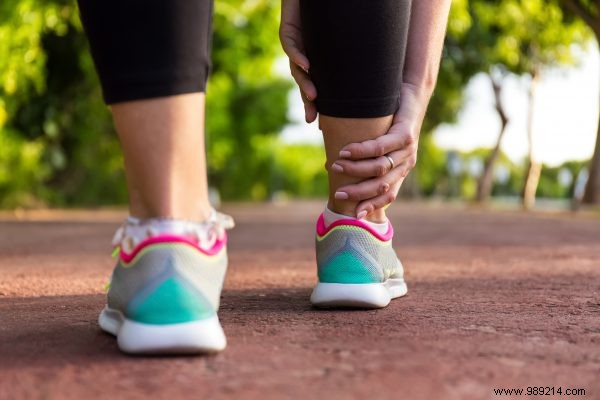
You see a change in your body or appearance, but can't always tell where it comes from. Fluid retention happens to almost all of us from time to time, but what exactly is that?
Swollen ankles, swollen feet or a bloated feeling in your stomach. Almost everyone recognizes it. And in summer you seem to keep a little more moisture than in other seasons, even if you are not heavily pregnant. These are the causes. Good to know.
Also read:'A day at the beach? Here's what you need to know about jellyfish bites'
Standing or sitting for a long time or taking a brisk walk are the best-known causes of water retention. That makes sense if you consider that moisture at 'low points', such as your feet and ankles, but also your hands - hanging along your body - stagnate a bit below. The fluid leaves your body through the blood vessels to the heart, but it cannot reach your heart properly because it is so low. On hot days, this is further enhanced, because the heat causes blood vessels to open even further and thus lose the moisture easily, but then have nowhere to take it. Ergo:it lingers on the lower points.
Give your hands and fingers some movement, wave them. And temporarily put your feet a little higher. Then the moisture can be carried away in a normal way again. Of course, you can also suffer from excessive moisture retention. Then you could take a closer look at your diet. Or – if that doesn't help – ask your doctor if it might be hormonal in you.
If you start looking at your food and drink, you can add diuretic herbs such as parsley, juniper berries and also rosehip tea to your menu fairly easily. And in addition, low-salt food is a key word. Too much salt also retains (too) much moisture and you are trying to prevent that.
This is how you check whether you suffer from moisture retention:press your finger into the skin, if you then remove your finger and a pit can be seen, you are indeed retaining moisture